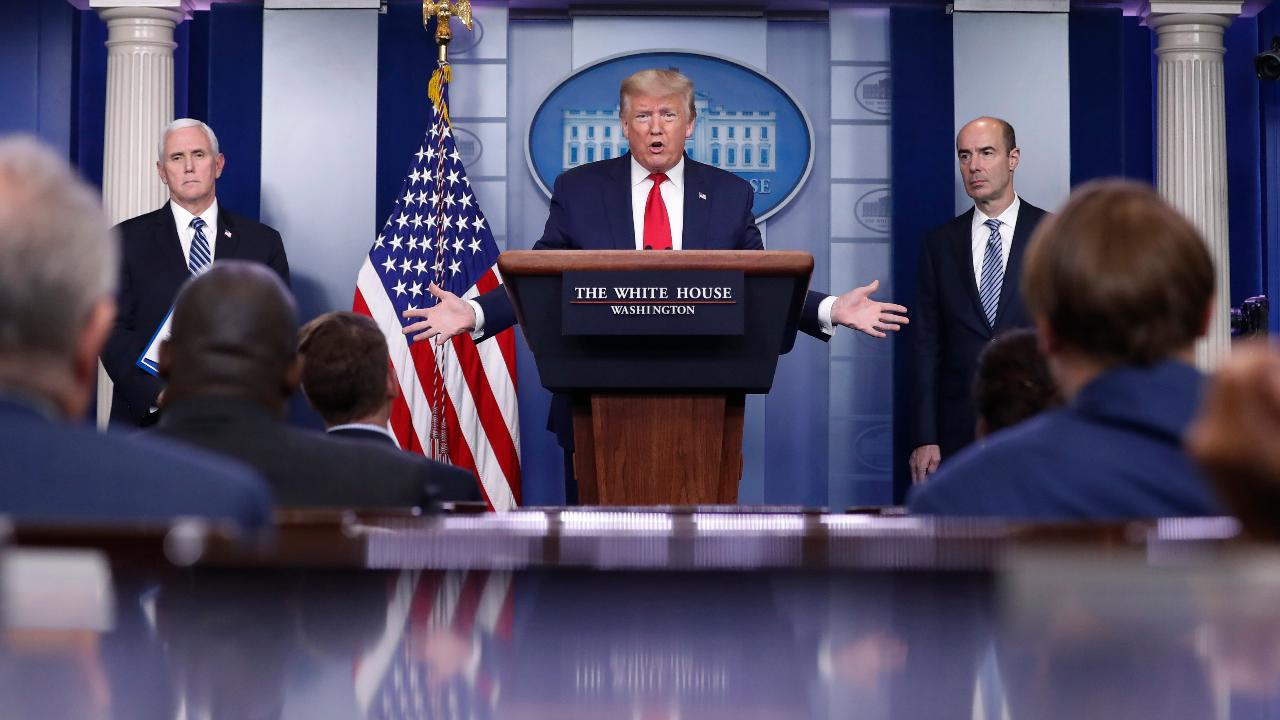Coronavirus crisis -- Use fintech's innovation, speed to help small business survive
As a result of COVID-19, a vast number of small businesses are only hours or days away from closing their doors
Get all the latest news on coronavirus and more delivered daily to your inbox. Sign up here.
The economic impact of COVID-19 has made it clearer than ever that small businesses are indeed the engine of job creation and innovation in America. They serve as the economic lifeblood in towns both big and small. Local restaurants, coffee shops, breweries, books stores, pubs and retail businesses of all kinds are the gathering hubs that gel a community.
As a result of COVID-19, a vast number of these businesses are only hours or days away from closing their doors. Sadly, many of them already have been forced to do so.
500,000 CORONAVIRUS SMALL BUSINESS LOANS APPROVED SO FAR, KUDLOW SAYS
President Trump and Congress should be commended for acting quickly and thinking big on how to bring much needed and immediate relief to millions of small Main Street businesses, local manufacturers, new economy enterprises and the self-employed. Over $350 billion has been appropriated in the form of emergency low-interest loans, with the portion fully forgivable that keeps employees on their payroll or brings them back over a specified period of time.
Yet despite the speed and urgency that Congress and the administration leveraged to secure these funds, for a variety of reasons, many traditional banks were unable to move as expeditiously as small businesses needed them to.
American small businesses already serve as a major customer base for leading fintech companies and they can deliver at a speed and scale many of today’s traditional banks and financial institutions simply cannot.
Some smaller banks have had some success, but we desperately need financial institutions of all kinds – both traditional and fintech – to help process applications and move the large sums of capital more quickly than has been appropriated for the Paycheck Protection Program (PPP).
Many small business owners and self-employed Americans are rightly quite concerned that they may not be able to access this capital due to not having pre-existing banking relationships or the fact that their current bank or lender may decide against participating in PPP.
MNUCHIN ASKING FOR $250B TO REPLENISH SMALL BUSINESS LOAN PROGRAM
No eligible small enterprise should be kept from accessing PPP or other economic stimulus funds appropriated by Congress. In some cases, those being turned away have been “underserved” small businesses that the federal stimulus program (The CARES Act) specifically prioritized. These enterprises include the small business communities that are traditionally “underbanked” who don’t often have long-standing or capital-intensive relationships with the corner bank or large financial institutions.
These small businesses are often mom-and-pop operations with under 10 employees. Often owned by veterans, women, and minorities and serving socially and economically disadvantaged populations – often rely on fintech innovators like Credit Karma, Stripe, Square, Intuit’s QuickBooks, PayPal and others to help operate and routinely provide capital for their businesses. Using the same or quickly retooled fintech products and services these companies already provide, President Trump, the Small Business Administration and U.S. Treasury Department can get much-needed relief funds much faster to more of the PPP’s intended recipients.
KUDLOW HOPEFUL CORONAVIRUS-SIDELINED ECONOMY WILL REOPEN IN 4-8 WEEKS
Many small businesses that are on the brink of closing simply can’t wait for traditional financial institutions to build a bridge to help deliver these funds to help save their operations. They need it done immediately with the click of a few buttons. Leveraging well-capitalized and widely-used fintechs can and should be an additional and critical means to do just that.
The problem is that to serve as a PPP lender, financial entities must be a Small Business Administration (SBA) 7(a) approved lender. The process is simpler for traditional lenders. As such, fintechs wishing to help expedite PPP loans cannot participate in deploying PPP generally or on behalf of millions of their own eligible small business customers, even though they can process loans quickly and electronically transfer funds within 48-72 hours.
GET FOX BUSINESS ON THE GO BY CLICKING HERE
Fortunately, the Treasury Secretary Steven Mnuchin is looking to expedite a yet to be finalized application for fintechs to become approved as lenders for the PPP program. And Sen. Marco Rubio and other policymakers have supported similar ideas that would allow fintechs to better democratize the CARES Act by allowing them to get money into the hands of individuals, families and small businesses sooner than is currently possible. Doing so could not come soon enough.
American small businesses already serve as a major customer base for leading fintech companies and they can deliver at a speed and scale many of today’s traditional banks and financial institutions simply cannot.
It is critical that their 24/7 technology platforms, innovative products and talent now be put to use to help small enterprises – and the workers, families and communities they support – to survive and subsequently return to prosperity in a post-COVID-19 economy.
Karen Kerrigan is president & CEO of the Small Business & Entrepreneurship Council.
The author's organization is supported by entrepreneurs and businesses from diverse industries, including the fintech sector.




















